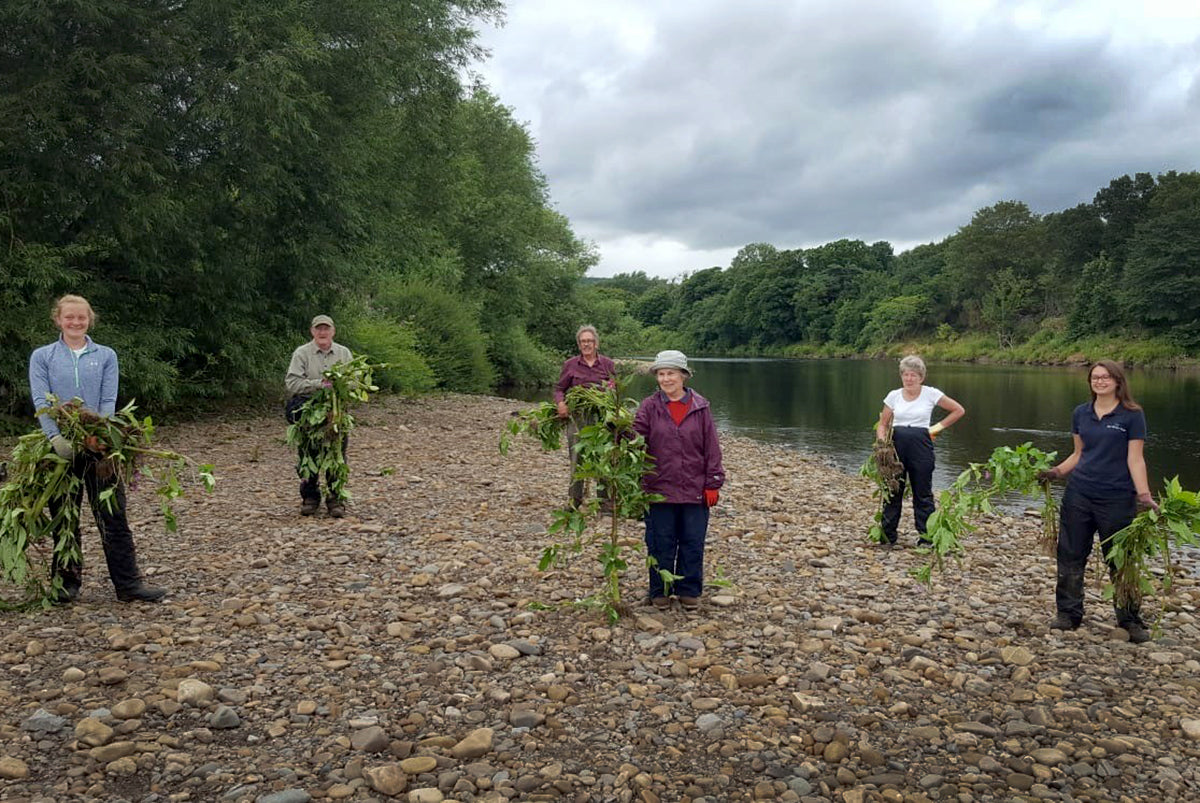
The Tyne River Brushcutter slices through overgrown paths, giving kayakers and ramblers renewed access to wild spaces that reconnect them with nature’s heartbeat.
A major problem with invasive species of plants is that if they are not controlled properly, regularly and often intensively, they will just keep growing and growing and growing. So it's lucky we have amazing teams of volunteers out there, such as those at the Tyne Rivers Trust.
Jenny, their volunteer coordinator got in touch worried that she hadn't sent an update on how the brushcutter purchased with help from the Alpkit Foundation had been getting on tackling the Himalayan Balsam. With the coronavirus pandemic consuming much of their season it has meant that very limited work could be done and nothing with the brushcutter. She needn't have worried though, as the team have been doing what they can, but also utilising it for other projects which is just great to hear.
As we roll on through to 2021 we know that the with reduced control activity, we are certain that the brushcutter will be even more valuable as it gets its teeth into that Balsam, making even more of an impact in the Tyne catchment.
"After receiving our grant from the Alpkit Foundation we began to search for and order a new brushcutter for the control of Himalayan balsam. We initially ran into a few problems with delayed delivery and faulty products arriving which set us back substantially. Following another attempt we received a brushcutter in working order. By the time this arrived we had missed the window to control Himalayan balsam in 2019 as Himalayan balsam seeds start to ‘pop’ in August and the prime time for control is July.
Instead, through 2019, our amazing volunteers worked incredibly hard to hand pull the invasive non-native species in order to control the plant and continue our previous work. We focused our work at top seed sources, in the upper reaches of the River Tyne catchment. This meant that these sites weren’t being fed with additional seeds from upstream. The following year the impact was great, with much reduced presence at a lot of sites."
This has highlighted the importance of a brushcutter as many sites in near-by areas are incredibly dense and would take days to clear by hand, whereas a brushcutter could control the area in a matter of hours.
"We had previously tested how effective a brushcutter would be. At one of our sites, near West Woodburn on the River Rede, we strimmed a very dense area, with the help of a local resident. We did this at the start and end of the season. Returning to this site the following year was hugely rewarding. An area of 50m2 covered in Himalayan balsam, now only had 23 plants! If this work can be replicated elsewhere in our catchment, the control of Himalayan balsam will be much improved, resulting in the reduction of invasive non-native species, improved biodiversity and reduced erosion."
Unfortunately this year has understandably had to see much reduced activity from the team of volunteers, but they are certainly not ones lacking in determination and whenever possible they have been out to do what they can so things didn't get even more out of control!
"Due to restrictions in place during the coronavirus pandemic our tasks were reduced in 2020. We decided to focus on getting our incredible volunteers back out and working in a safe environment. This meant that the brushcutter could not be used and instead, focus was shifted to making sure everyone was working safely. We managed to deliver 4 covid-safe tasks pulling Himalayan balsam and undertook walkover surveys to identify dense sites for the brushcutter to use next year."

As for that brushcutter, it was starting to feel like it would never get unleashed to help the team out, but of course there was no real need to worry as the intrepid team saw other opportunities where it could come in very handy.
"We have been able to use the brushcutter funded by the Alpkit Foundation for other project work which has been a huge help. We have undertook a large hedge laying project, over 450m of hedgerow on a farm near Corbridge. Cutting back the rank grasses around the hedge after laying resulted in more light and space for the new hedge to grow into."
If you're interested in joining the team of volunteers and the great work they are doing, then you can find out more info here
